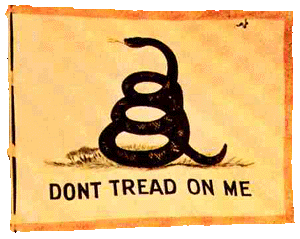



 Section 5.1.
Section 5.1.
(1) Each State retains its sovereignty, freedom, and independence, and every power, jurisdiction, and right, which is not expressly delegated to the Congress by this Constitution.
(2) Full faith and credit shall be given in each State to the public acts, records, and judicial proceedings of every other State; and the Congress may, by general laws, prescribe the manner in which such acts, records, and proceedings shall be proved, and the effect thereof.
(3) Each State shall have the power to regulate or prohibit any activity that takes place within its borders, provided that no State regulation or prohibition shall infringe any enumerated or unenumerated right, liberty, privilege or immunity recognized by this Constitution.
(4) The Citizens of each State shall be entitled to all the privileges and immunities of Citizens in the several States and shall have the right of transit and sojourn in any State with their property (including knives, legal firearms, and ammunition) and the right of property shall not be thereby impaired.
(5) A person charged in any State with treason, felony, or other crime against the laws of such State, who shall flee from justice, and be found in another State, shall, on demand of the Governor of the State from which he fled, be delivered up, to be removed to the State having jurisdiction of the crime.
(6) Neither any State nor any political subdivision shall be forced by any Federal agency to turn over their records in any format unless it can be released to public by State law, required by an act of Congress, or by subpoena when issued by a Federal court during a criminal or civil investigation or trial.
(7) Proposed restrictions on or taking of land and other real property owned, restricted, or controlled by this Federation may be claimed or challenged by the State where it is located. If this Federation cannot justify ownership as vital to the national security and defense or to carry out the duties of this Constitution, the property shall not be taken but returned or sold to the State.
(8) Each State shall have the power to create its own Supreme Court and other subordinate State Courts as provided for by their Constitution. Any legal controversy that is solely within a single State shall only be appealed to a Federal court if the State Supreme Court or equivalent judicial body refuses to hear it. The decision of the State Supreme Court or equivalent judicial body shall be the final authority for all laws (including laws passed by the Congress) for that individual State and shall be appealed only to the Federation Supreme Court.
(9) Except for acts of war each State shall have the primary responsibility, control, and command for its planning and long term recovery from any disaster and may enter into compacts with other States and this Federation for mutual planning and lateral support. The President or a Governor shall have the power to waive any Federal or State laws that may impede the implementation of any disaster relief or response efforts. Upon a disaster declaration by the President the Congress may, by law, authorize funds for first response emergency relief only.
(10) States shall not be restrained from prohibiting the importation or exportation of any species of goods or commodities whatsoever.
(11) Each State shall have the power to regulate the exploration, mining, or recovery of natural resources, water excluding rainwater collected on private property, oil, or other minerals on non-Federal lands and property or inside of twelve nautical miles off the ocean, river, or lake coasts.
(12) Each State shall have the power to create an international border patrol or air, sea, or transportation security agency but Congress may, by law, set minimum security standards but leave implementation to the individual States.
(13) No State shall, without its consent, be deprived of its equal representation in the Senate.
(14) No State shall have the power to enact any legislation that regulates conduct outside its borders, protects its own Citizens from out-of-state competition, or places undue burdens on interstate commerce.
(15) This Federation shall guarantee to every State a republican form of government, and shall protect each of them against invasion, terrorism, and illegal immigration; and on application of the Legislature, or of the Governor (when the Legislature cannot be convened) against domestic violence.
Section 5.2.
(1) Other States may be admitted into this Federation by a vote of two-thirds of the House of Representatives and two-thirds of the Senate, the Senate voting by States; but no new State shall be formed or erected within the jurisdiction of any other State; or any State be formed by the junction of two or more States, or parts of States, without the consent of the Legislatures of the States concerned, as well as of the Congress.
(2) This Federation may acquire new territory; and Congress shall have power to legislate and provide governments for the inhabitants of all territories or other protectorates belonging to or controlled by this Federation, lying without the limits of the several States; and may permit them, at such times, and in such manner as it may by law provide for, to form States to be admitted into this Federation.
(3) If a new State is admitted from outside the territory of the United States then wherever the words "United States" is used in the body of this Constitution shall apply to the former territory, as applicable, from the prior political region where said new State is created from.
(4) For up to ten years after this Constitution is in force any State or Territory (whole or in part) of the United States may become a State of this Federation by their adoption of this Constitution and shall not need the consent of Congress.
Section 5.3.
(1) No State, while remaining a member of this Federation, shall nullify or refuse to obey this Constitution, or any law passed by the Congress or Federal court (unless said law or decision in violation of this Constitution as stated elsewhere) but any provision of law or regulation or court decision of this Federation may be repealed by the several States, and such repeal shall be effective when the legislatures of one-third of the several States approve resolutions for this purpose that particularly describe the same provision or provisions of law or regulation to be repealed.
(2) Each State shall have an inalienable and irrefutable right of secession and when any State shall desire to withdraw from this Federation, such desire shall be communicated to the Congress, upon the approval of two-thirds of the Citizens thereof, specifically setting forth the causes of such desire to withdraw.
(3) Congress shall consider the alleged grievances, and on failure to redress or accommodate the same, to the satisfaction of the complaining State, the Federation shall arrange with such State an equitable division of the public property, and a peaceable withdrawal from the nation.
(4) But no State by withdrawing from this Federation in the manner herein provided, or in any other manner, shall be discharged or released from the obligation to pay a due proportion of the public debt existing at the time of such withdrawal; and such withdrawal shall, moreover, oblige the State withdrawing to account with this Federation for all expenditures made, or liabilities incurred by this Federation, in acquiring, securing, fortifying or defending the territory or jurisdiction of such State.
Section 5.4.
(1) Each State may create organized and unorganized State Militias and the Governor of State shall be the Commander-in-Chief of the State Militia. Territories may create a militia with the consent of Congress.
(2) All persons who are the age of majority or not older than sixty years of age and are not ineligible to keep and bear arms as provided for elsewhere in this Constitution, are not a member of the Armed Forces or other Uniformed Service, National Guard, or an elected public official are members of the unorganized State Militia and may be assembled into an organized State Militia to assist in the keeping of the peace, repelling invasions, disaster relief, and the enforcement of laws when called upon by the Governor of State.
(3) State Militias may consist of air, land, and naval components, but no Federal funds shall be expended unless the State Militia is assigned a mission by the Congress or called into Federal service as provided for by this Section. But State Militias shall have the right of first refusal of any surplus military equipment, weapons, uniforms, or supplies provided the State bears all costs of transfer.
(4) The Militia shall not be called up for Federal service by the President within the United States or foreign lands without the permission of the Governor and shall be paid and regulated in the same manner as the National Guard if permitted to perform Federal service.
Section 5.5.
No State shall have the power:
(1) To enter into any treaty, alliance, or confederation; grant letters of marquee and reprisal; coin money; make anything but gold, silver, platinum, or other precious metal a tender in payment of debts; pass any bill of attainder, or ex post facto law, or law impairing the obligation of contracts; or grant any title of nobility.
(2) Without the consent of the Congress, lay any imposts or duties on imports or exports, except what may be absolutely necessary for executing its inspection laws; and the net produce of all duties and imposts, laid by any State on imports, or exports, shall be for the use of the Treasury; and all such laws shall be subject to the revision and control of Congress.
-- And
(3) Without the consent of Congress, lay any duty on tonnage, except on sea-going vessels, for the improvement of its rivers, canals, and harbors navigated by said vessels but such duties shall not conflict with any international treaty with foreign powers; and any surplus revenue after making such improvements, shall be paid into the Treasury. Nor shall any State enter into any agreement or compact with a foreign power, or engage in war, unless actually invaded, or in such imminent danger as will not admit of delay. When a transportation route, pipe line, natural or manmade waterway goes through or divides two or more States they may enter into compacts with each other to improve the navigation thereof.
Section 5.7.
(1) One or more States may investigate any elected or appointed Federal public officials and organizations for corruption, high crimes, treason, or bribery by appointing a special prosecutor with full grand jury powers except if the case is already being investigated or prosecuted by the Federation or other entity which has jurisdiction over the crime.
(2) If one or more States determines that an investigation or trial was politically motivated, a sham or used for the purpose of shielding the person concerned from criminal or civil responsibility for their crimes, not conducted independently or impartially in accordance with the norms of due process recognized by law, to hide or cover-up corruption or crimes of other persons or organizations, or were conducted in a manner which was inconsistent with an intent to bring the person concerned to justice then the special prosecutor can investigate with full grand jury powers.
(3) The special prosecutor shall present his findings in a hearing before the Supreme Court. But no person shall be convicted without the concurrence of two-thirds of the Justices present and judgment shall not extend further than to removal from office and disqualification to hold and enjoy any office of honor, trust, or profit or any elected office; but the party convicted shall nevertheless be liable and subject to indictment, trial, judgment and punishment, according to the same rules as an impeachment stated elsewhere in this Constitution.
| CLICK HERE TO RETURN TO THE FRONT PAGE |
 |
|
|
 |